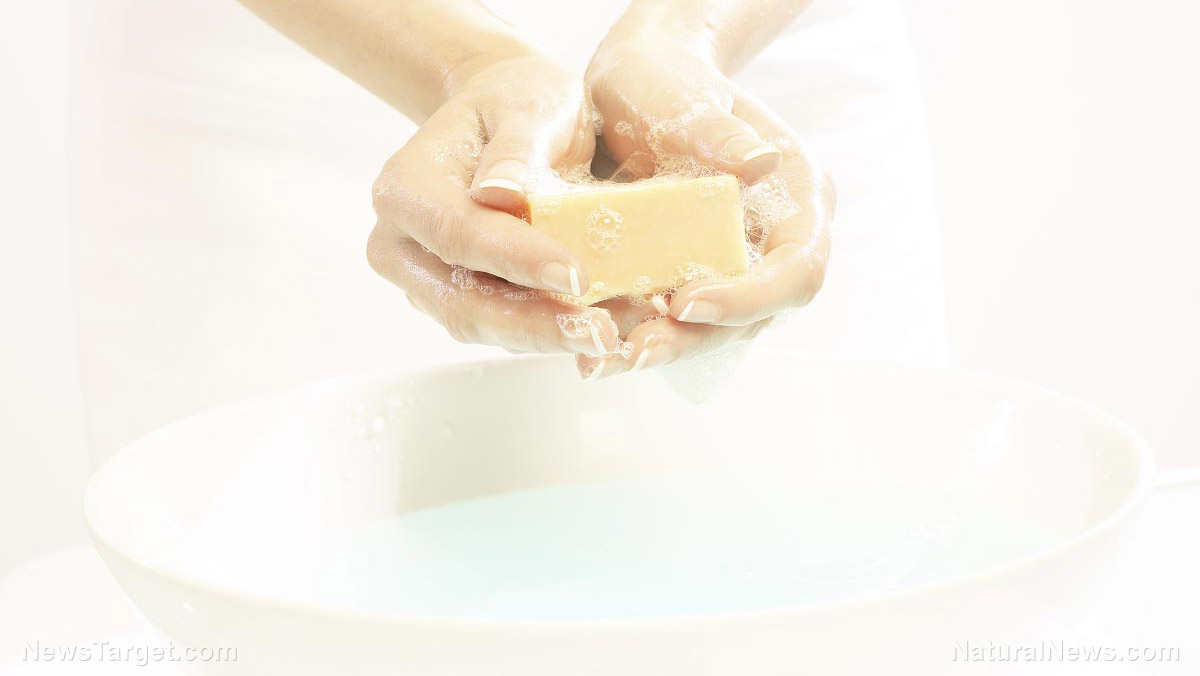
Vinegar is a pantry staple that has many uses. You should stock up on vinegar before SHTF because this useful ingredient can also be used for cleaning around your home and treating minor medical emergencies. (h/t to PrepperWebsite.com)
Even if disaster doesn't strike, vinegar is a must-have in your kitchen because this ingredient is a safer alternative to store-bought cleaning supplies with many harmful ingredients. Vinegar is also safe to use around children and pets, so try using this alternative to keep your home clean.
For cooking
Here are some suggestions on how to use vinegar while cooking or preparing food:
- When boiling eggs, add a little vinegar to the water to help keep egg whites from running out if the eggs crack while boiling.
- Add a couple of drops of vinegar to pasta as it boils. This helps make the pasta less sticky.
- Soak dried beans in apple cider vinegar overnight and rinse completely to lessen the gas they create.
- If you have wilted vegetables, revive them by soaking the veggies in water with a little bit of vinegar and sugar.
- If a recipe calls for lemon juice and you don't have any, use vinegar instead.
For cleaning
Here are some suggestions on how to use vinegar for cleaning:
- Use a half and half solution of vinegar and water to clean tough stains on plastic or on metal kitchen utensils.
- Use vinegar and water to clean and deodorize plastic coolers. After soaking the items in the mixture, wash them with soap and water.
- If you have pots or coffee pots with stubborn stains, soak the pots in vinegar for 30 minutes. Wash using hot soapy water. Alternatively, you can fill the pot with a solution of three tablespoons of vinegar to a pint of water. Boil until the stain loosens and can be washed away with soap and water.
- After cutting cabbage, garlic, onions or peppers, wash your hands with a bit of vinegar to get rid of the smell.
- Cutting boards can be home to bacteria and without proper sanitization, that bacteria can end up causing illnesses. Clean and sanitize cutting boards with a bit of vinegar to kill bacteria.
- Use vinegar to safely clean and sanitize jars that you are going to use for prepared or pickled foods.
- Add 1/4 to 1/2 cup of vinegar to your washing machine to brighten whites.
- If you have items with stubborn stickers, use a bit of vinegar to remove the sticky residue.
Human knowledge is under attack! Governments and powerful corporations are using censorship to wipe out humanity's knowledge base about nutrition, herbs, self-reliance, natural immunity, food production, preparedness and much more. We are preserving human knowledge using AI technology while building the infrastructure of human freedom. Use our decentralized, blockchain-based, uncensorable free speech platform at Brighteon.io. Explore our free, downloadable generative AI tools at Brighteon.AI. Support our efforts to build the infrastructure of human freedom by shopping at HealthRangerStore.com, featuring lab-tested, certified organic, non-GMO foods and nutritional solutions.
For gardening
Use vinegar in your garden to get rid of weeds, moss or pests.
- Pour vinegar into a spray bottle and squirt the liquid to get rid of weeds naturally without ruining underground water. Spray vinegar into the crevices and cracks on the cement and on your driveway cracks to get rid of weeds naturally.
- You can also use vinegar to kill moss. Add one tablespoon of white vinegar or apple cider vinegar to one gallon of water and spray the mixture on mossy areas of your garden. Carefully saturate the top layer and repeat daily until the moss dies.
- Soak seeds in vinegar to hasten the germination process by breaking down the seeds' outer layer faster and encouraging sprouting.
- Vinegar is safe enough to use in the soil surrounding your garden. Use vinegar to get rid of common garden pests like ants, aphids, slugs and snails.
- To get rid of ants, mix white vinegar with water and spray it on areas that are infested. Alternatively, you can spray the vinegar mixture directly on the anthill to quickly eliminate ants.
Medicinal applications
Here are some of the medicinal applications of vinegar or apple cider vinegar.
- Apply a bit of vinegar on a burn to help prevent blistering.
- Vinegar is a natural antiseptic. Apply vinegar directly to the skin as an antiseptic for cuts and abrasions to help reduce swelling and promote healing.
- Use a washcloth soaked in vinegar and place it over sunburnt skin to help take out the sting. (Related: Prepping essentials: The medicinal and survival uses of baking soda.)
- Mix equal parts honey and apple cider vinegar to soothe a sore throat.
- Relieve the itch from poison ivy and reduce swelling by applying vinegar directly to the affected area.
- Relieve an itchy insect sting by applying a cotton ball soaked in cider vinegar.
- Soothe a jellyfish sting by dousing the affected area with vinegar.
Herbs and fruits that can be turned into vinegar
The following herbs and fruits can be turned into homemade vinegar:
- Apples
- Basil
- Blueberries
- Cilantro
- Citrus Peel
- Dill
- Garlic
- Ginger root
- Hot peppers
- Lavender
- Onion
- Oregano
- Pears
- Peppercorns
- Pineapple
- Raspberries
- Strawberries
- Thyme
- Unsprayed rose petals
You will need:
- Herbs or fruits of choice
- Containers
- Cloth
- Rubber bands
Follow the steps below to make an herb or fruit vinegar:
- Sterilize the container by filling it with boiling water and letting it stand for five minutes. Pour the water out and add the peelings.
- Cover the peels with distilled water. Cover the container with the cloth and rubber bands. Secure it carefully so insects and dirt can't get in the mixture.
- The cloth allows the natural bacteria and wild yeast in the air to colonize in the vinegar, which in turn causes it to ferment.
- Stir the mixture once a day to make sure that the ferment is mixing with the rest of the liquid.
- After a few weeks, the mixture will emit a vinegary odor. Let the vinegar ferment until you have the intensity that you want.
- At this point, strain the mixture using clean cheesecloth.
- Store the liquid in a cool, dark place.
Use homemade vinegar like regular vinegar. The herb or fruit peel you use to make the vinegar will give it a different flavor.
Compared to apple cider vinegar, peach vinegar will be fruitier and more mellow. Experiment with different herb and fruit combinations and ingredients to see which you like the best.
Visit Survival.news to read about other items with many survival and prepping uses.
Watch the video below to know about 10 benefits of using apple cider vinegar.
This video is from the Health Tips channel on Brighteon.com.
More related stories:
5 Apple cider vinegar hacks for a cleaner home.
Apartment prepping 101: Pickling vegetables for long-term storage.
Prepping basics: 8 Types of foods to keep in your survival pantry.
Sources include:
Please contact us for more information.



















